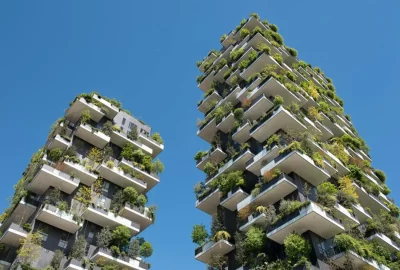Dubai, renowned for its stunning skyscrapers and luxurious lifestyle, might not be the first place that comes to mind when thinking about sustainability. However, this bustling metropolis in the heart of the United Arab Emirates has made impressive strides in embracing eco-friendly initiatives. Today, Dubai-based businesses and organizations are taking the lead in adopting sustainable practices, setting an example for the rest of the world.
Sustainable Architecture: The Dubai of Tomorrow
Dubai is known for its iconic skyline, and the city is making sure that its architecture aligns with a greener future. The UAE’s first sustainable city, Dubai Sustainable City, sets the stage. This self-sustaining community focuses on renewable energy, efficient waste management, and organic farming. Additionally, Dubai has taken the lead in using cutting-edge technology like 3D-printed buildings that are not only cost-effective but also reduce construction waste. The Office of the Future, a 3D-printed building, is a prime example of this forward-thinking approach. 
Sustainable Transportation: Reducing the Carbon Footprint
Dubai has recognized the importance of sustainable transportation. The Dubai Metro, the world’s largest driverless metro network, reduces traffic congestion and promotes public transportation. Furthermore, Dubai is investing in electric and hybrid buses, promoting ride-sharing, and installing electric vehicle charging stations. These initiatives are pivotal in reducing the city’s carbon footprint and promoting a green commute.
Green Initiatives in Hospitality
Dubai’s hospitality sector has also embraced sustainability. Many hotels and resorts are taking significant steps to minimize their environmental impact. The Jumeirah Group, a prominent Dubai-based luxury hotel chain, has implemented a “Dubai Turtle Rehabilitation Project,” which aims to rescue and rehabilitate sea turtles, thus preserving the delicate marine ecosystem. Other hotels have adopted water and energy conservation programs and are minimizing single-use plastics.

Sustainable Retail and Commerce
Dubai’s retail and commercial sector is not far behind in adopting eco-friendly practices. The Dubai Mall, one of the world’s largest shopping destinations, has introduced numerous green initiatives, including water and energy-saving measures, waste recycling, and sustainable transport options for shoppers. Additionally, a growing number of businesses in Dubai are choosing to incorporate sustainable materials and practices into their operations, from fashion brands to tech companies.
Promoting Renewable Energy
Dubai has set ambitious targets for clean and renewable energy production. The Mohammed bin Rashid Al Maktoum Solar Park, one of the largest solar projects in the world, is a prime example of this commitment. The park aims to provide up to 5,000 megawatts of clean energy by 2030, contributing significantly to reducing carbon emissions.
Sustainable Food Practices
Sustainable food practices are gaining traction in Dubai’s culinary scene. Many restaurants and cafes have incorporated farm-to-table concepts, promoting organic, locally sourced ingredients. Additionally, the Dubai Municipality has launched “My City, My Environment” campaigns, focusing on waste reduction and encouraging responsible disposal of food. 
Government Initiatives
Dubai’s sustainable journey wouldn’t be possible without government support. The Dubai Clean Energy Strategy 2050 sets ambitious targets for clean energy production and reducing energy and water consumption. Dubai’s leadership understands the importance of sustainability in ensuring the city’s future growth and prosperity.
Dubai, often associated with opulence and extravagance, is defying stereotypes and leading the way in sustainable business practices. Businesses, organizations, and government initiatives are converging to create a more eco-friendly and environmentally responsible Dubai. As the city continues to grow and evolve, it’s setting an inspiring example for other cities worldwide. By embracing sustainability, Dubai proves that even in the most unexpected places, a greener future is possible.

